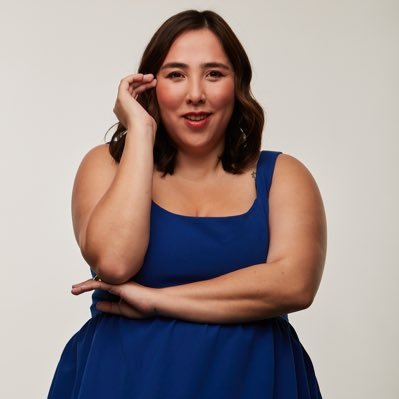
Michelle Elman reveals why the heartbreak of losing a friend deserves more space in our conversations and in our healing journeys.
When we talk about break-ups, the first thing that often comes to mind is the romantic kind. However, a heartbreak that is rarely discussed is the pain that comes from a platonic break-up — the kind where someone who was once your closest friend suddenly becomes someone you avoid all eye contact with when you walk past, like a stranger. It’s as if they don’t exist.
Most of us have experienced a friendship break-up, whether it ended in a dramatic blowout or a quiet ghosting, and both can hurt just as much as a romantic break-up. So, why don’t we talk about it in the same way?
I believe the stigma surrounding friendship break-ups goes back to childhood. As kids, we’re conditioned to fear being labelled as a loner, or that our other friends will have to pick sides if there’s a fall-out – especially if the side that is picked is not ours. The thought of eating lunch alone or being the one who has no one to sit with is a real anxiety. As a result, when a friendship falls apart, we often remain silent, because admitting to it feels childish or socially awkward. But the pain is real, and it deserves to be acknowledged. That is why I wrote Bad Friend: Why Friendship Breakups Hurt and How To Heal.
Throughout the process of writing, I realised how I was never alone in my experiences, and yet, how truly alone I was, and everyone else is, made to feel. Whenever I mentioned my book at events, people would open up and share their own stories of friendship breakups – stories they rarely spoke about, even to their closest family or friends. The more I listened, the more it became clear that this unspoken pain deserves our attention. Silence implies shame, and we need to break that silence.
Why we feel so alone when friendships end
Research shows that over the course of our lives, we will make around 29 friends, but only six of them will stand the test of time. This means that on average, we experience 23 friendship endings in our lifetime. So, why do we feel like we’re the only ones when it happens to us?
The problem is that being a good friend is an increasingly difficult standard to meet. Friendship is a blurry concept – it’s not as defined as romantic relationships, where we have clear expectations. We lack the same vocabulary to describe the spectrum of friendships, and to decipher between the person who was our next-door neighbour for most of our childhood and the person who keeps us sane during our workdays.
‘Friend’ is an all-encompassing term, but its meaning can differ widely from person to person, leading to disappointment when expectations aren’t met. We all operate by an unspoken set of rules, but we quickly learn that not everyone is singing from the same friendship hymn sheet.
Building relationships that reflect your values
One way you can improve your friendships is to start looking at what values matter to you most within friendship. We rarely take the time to define what a friend means to us and what is most important to us in friendship. Without doing this, we can be expecting a lot from the people around us when in fact, we are asking for criteria that we don’t even meet ourselves.
We are all busy as adults, and just because someone doesn’t meet all your values doesn’t mean they are a bad friend. Having an awareness of what you need in friendship means that you can search for that in new friendships. One person might not meet all your needs, but your collective group of friends might.
Find your values by asking yourself, ‘What is important to me in friendship?’, then writing as long a list as possible before narrowing it down to your top eight. The top eight values are the ones that are most likely to affect and dictate your behaviour, and so those are your most important.
Having this list not only means you have a sharper focus when looking to introduce more people into your life, but will also illuminate why you felt the way you did when past friendships broke down as well. For example, if your top value in friendship is loyalty, but reliability doesn’t feature, it would make sense that you were more forgiving when someone forgot your birthday and were being unreliable – but that the line in the sand that ended the friendship ended up being when they shared your secrets with others.
To move forwards, I believe we need to destigmatise friendship breakups. Friendships can – and do – end, and when they do, it’s important to communicate as best as we can, out of respect for the relationship that once was. It’s natural for conflict to escalate at times, but the key is understanding that the end of a friendship isn’t a failure. We can appreciate a friendship for the value it brought, even if it no longer serves us in the way it once did.
Sometimes, letting go is necessary for personal growth and for making space for the friendships that truly align with who we are now. Just as in romantic relationships or even workplaces, saying goodbye can be a positive step forward, leading us to healthier and more fulfilling connections.
How to heal after a friendship ends
I have found that one of the ways you can heal from friendship breakups is to learn from them. The best way you can do that is by writing a list of every single thing that you would have done differently, and specifically how you would have changed your behaviour. Sometimes we can only learn in hindsight, and by recognising your bad friendship patterns and downfalls, we can make changes to our behaviour to not only improve our future relationships, but to better our current friendships too.
It is also helpful to write a list of every reason why the friendship ended. Much like a romantic breakup, your mind can play tricks on you at 2am when you are sad, lonely or bored, and start convincing yourself that you made the wrong decision or that you should be friends again.
Trust that you made the right decision: the friendship ended for a reason, and just because you miss them, it doesn’t mean you made a mistake. Having a concrete list to remind you of everything that went wrong in the friendship prevents your mind from glamourising or romanticising the person in their absence, and will keep you rooted and grounded in reality.
In the end, we all deserve friendships that nurture and support us. By recognising that friendship breakups are part of life’s natural ebb and flow, we free ourselves from the fear and shame that often surrounds them. And, with time, we can embrace the beauty of new connections and the possibility of deeper, more authentic friendships ahead.
This article was originally featured in the Spring Issue 194 which can be purchased
here. 



